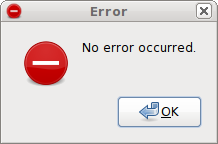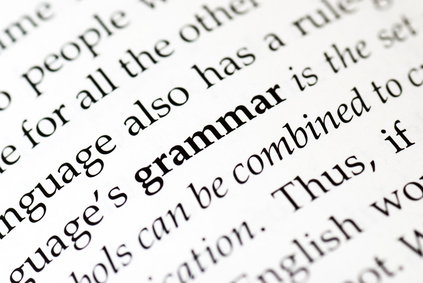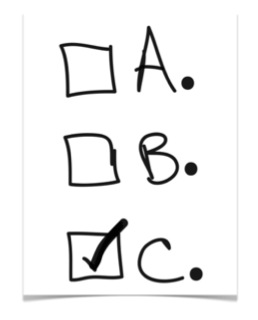The following SAT grammar article is an excerpt from my e-Book SAT Grammar Crammer! To master the most important rules of SAT grammar, get your copy today.
Misplaced Modifiers: When extra details go hilariously wrong
Modifier errors are my favorite grammar mistakes in the SAT Writing section!
In a test that is almost entirely boring and humorless, this type of mistake brings a little bit of comedy to the SAT! You just have to know how to appreciate it… yet another reason that grammar is important.
In English grammar, “modifier” or “modifying phrase” is never essential to the main sentence; it simply adds extra details about the more important elements of the sentence.
Here’s an example of a “modifying phrase”:
“who worked as a fireman for many years”
This phrase adds detail and description to something, kind of like an adjective would – in this case, it would provide background information about someone already mentioned within the sentence.
However, such details have to be attached to something or someone – they can’t just stand on their own. Modifiers will never be complete sentences; they are always dependent on their attachment to the main sentence.
Get Exclusive SAT Prep Tips!
I want to send you more tips to help your SAT score, but I need your email address to stay in touch. Enter your email below so I can send you my reports on the SAT and other subscriber-only bonuses.
Continuing with the fireman example, the modifying phrase might be correctly attached to a sentence in the following way:
“Jeremy, who worked as a fireman for many years, was able to rescue the cat from the tall tree.”
Notice – like I promised – that the modifying phrase is never essential to the main sentence.
Take it out, and you’ll be left with “Jeremy was able to rescue the cat from the tall tree,” which is still perfectly able to stand on its own. It’s just a little less descriptive (read or re-read the Eliminating Details lesson to understand the importance of this fact).
Now, in the case above, the modifying phrase has not been “misplaced.” That’s because “Jeremy,” the person who is being modified/described in more detail, is right next to the phrase “who worked as a fireman for many years.”
It’s really, really important that a modifier is right next to the person or thing it is modifying. If you break this rule, prepare for some hilarious misinterpretations of your writing…
Check out the ridiculous results of moving that phrase to a different location in the sentence, far away from “Jeremy”:
“Jeremy was able to rescue the cat, who worked as a fireman for many years, from the tall tree.”
Heh-heh-heh. Silly sentence – cats can’t work as firemen!
By putting the modifier next to “cat” instead of “Jeremy,” it has been literally “mis-placed,” and the meaning of the sentence is now completely altered, and not for the better.
The big trick to catching these errors every time they show up on the SAT is to expect them. Any descriptive phrase should be suspicious – treat them as guilty until proven innocent.
Another big hint is that four times out of five, the modifying phrase will appear at the very beginning of the sentence. Once you’ve found such a mistake, your next goal is to eliminate the answer choices that repeat the modifier mistake while looking for other options that fix the modifier by putting it next to the person or thing it was really meant to describe.
When it comes to misplaced modifiers on the SAT Writing section, just focus on using your common sense and making sure that the description matches up with something non-ridiculous.
To get the complete text of this SAT Writing and Grammar lesson, along with more than 14 other lessons, two diagnostic tests and over two hundred SAT Writing practice questions, purchase your copy of The Top 12 SAT Writing Grammar Rules today!
Further Reading:
What exactly is on the SAT Writing test?
SAT Writing Tips: Eliminating Details Strategy
SAT Writing Grammar Rules: Sentence Fragments
SAT Writing Rules: Adjectives and Adverbs
Why is Grammar Important?
Additional Resources:
SAT Grammar Crammer: Top 12 Rules of SAT Writing (e-Book)
Before you go, join my SAT email list! I’ll send you subscriber-only content like my Urgent Report on SAT Reading and bonuses to help you prepare for your standardized testing.


















Find Me on Social Media